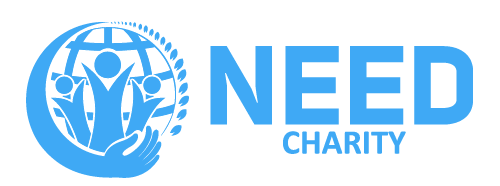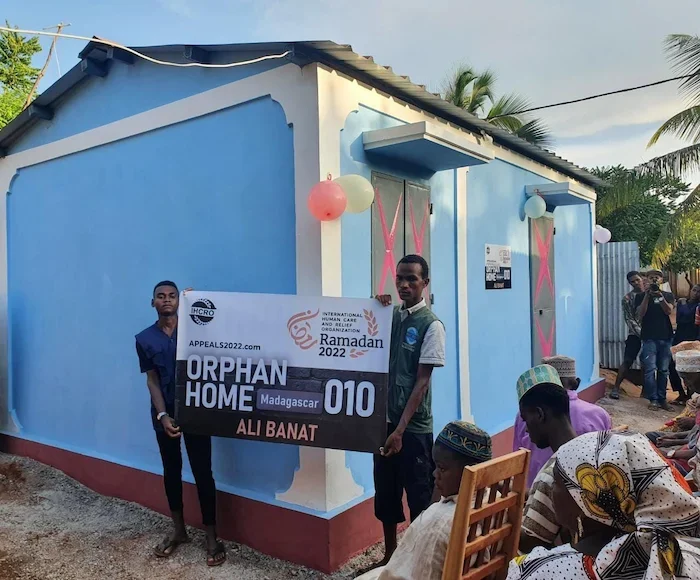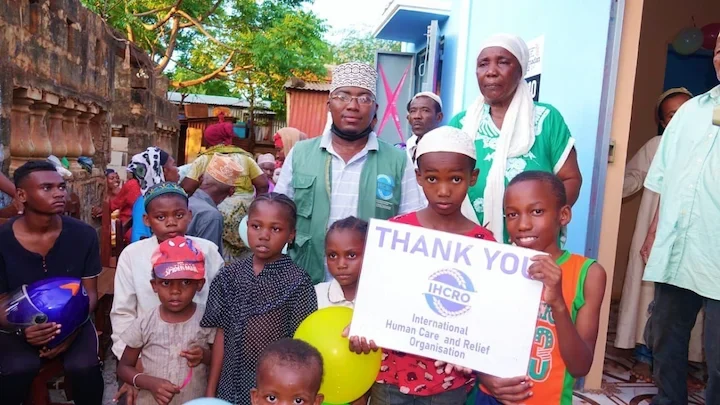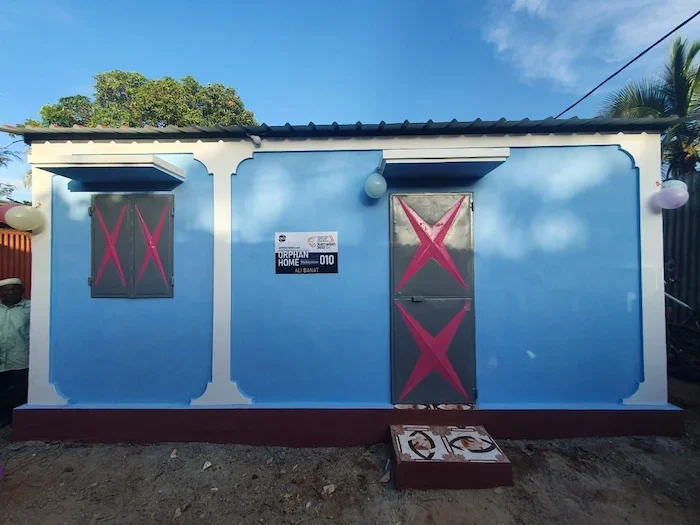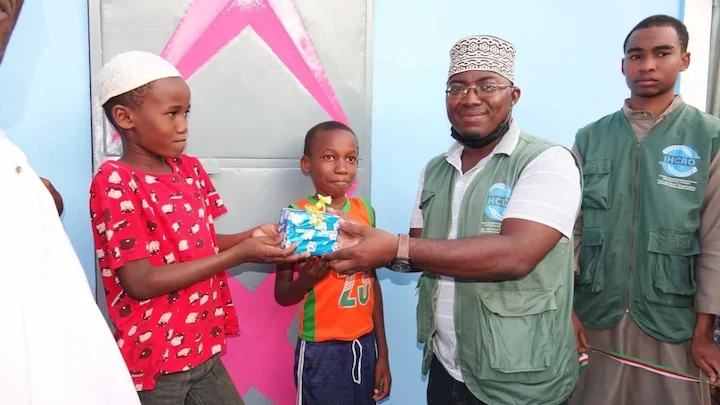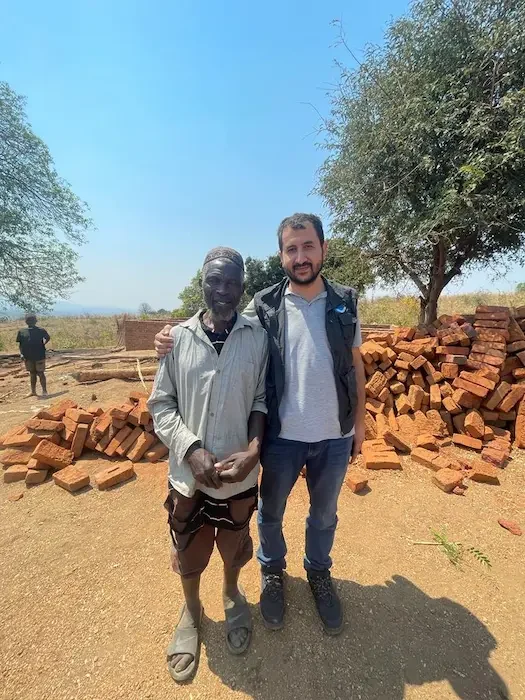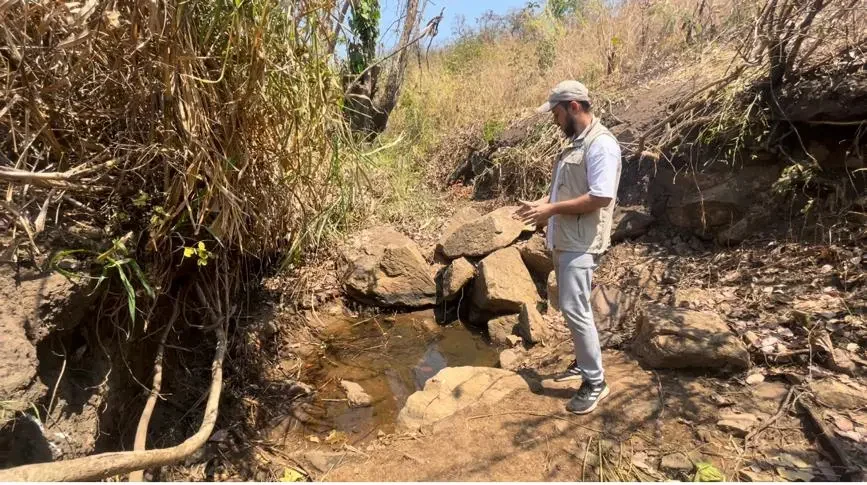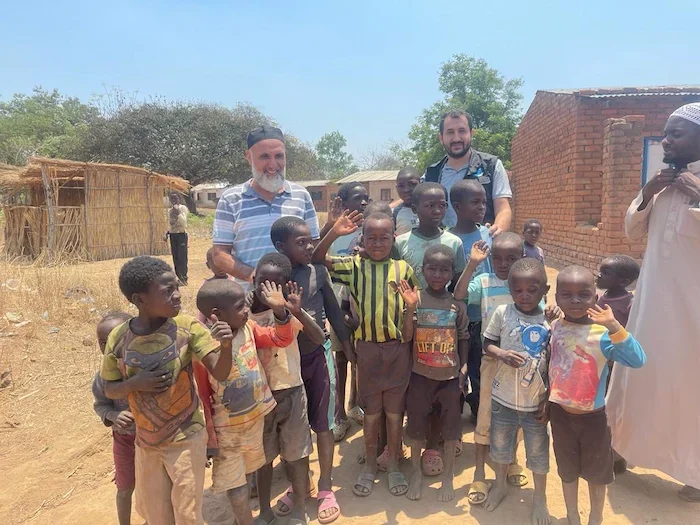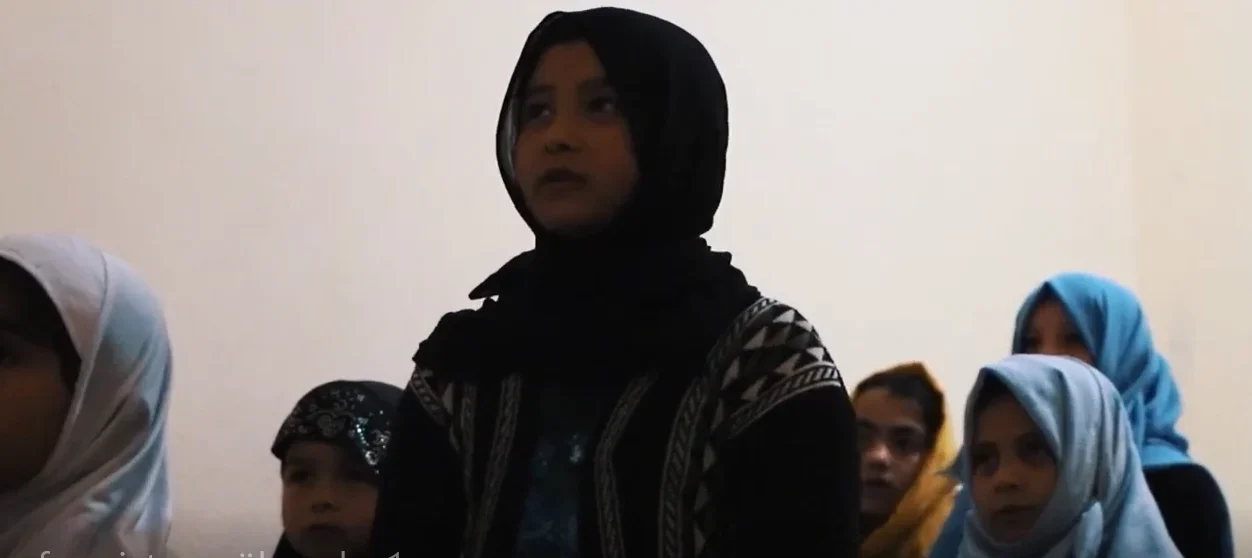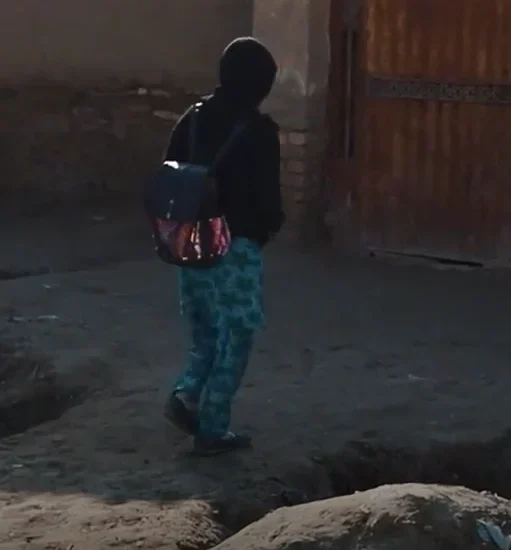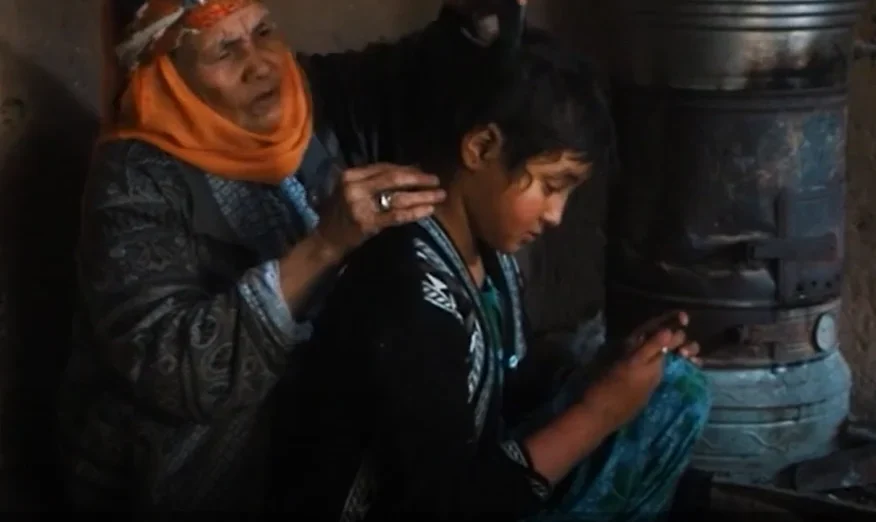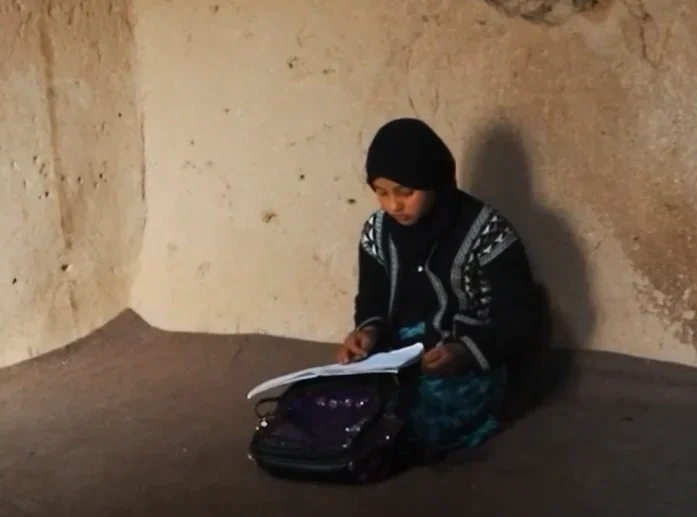Omar Ahmed and Aise Naccar Quran Center
While visiting the projects we did in Madagascar, we went to visit an orphanage. We started our project to build an orphanage in May 2021. Our goal was to build 100 orphanages in different countries. Alhamdulillah it was all over. We recently delivered our 82nd house in Afghanistan. Then we went to house number 10 that we built in madagascar. And we encountered a similar story in this house as in the other house. There was a 10-year-old boy named Dario living in this house, we didn’t see him, but we listened to his story. Because at that time, Dario was studying the Qur’an in the madrasah. When Dario was just born, his mother left the family. Dario’s father died when he was only 1.5 years old. Dario’s grandfather, who started to live with his grandmother and grandfather in Dario, was the imam of the mosque, and he always went to the mosque with his grandfather and always prayed. One of our partner team noticed this boy and after meeting with Dario, he realized that he was a smart and hardworking boy who had been memorizing the Qur’an since he was 4 years old. The house they lived in consisted of a barracks, his grandfather was the imam of the mosque voluntarily and he had no other job because he was old. They were living in financial difficulties. Our partner team decided to help this family and after we approved it, they decided to build house number 10 of our Ramadan Project for Dario. When the house was completed and thanks to the other supports we made, the family started to make a living more easily and they enrolled Dario in the madrasah. Dario now continues to learn Islamic sciences in a good condition.
A Muslim Village of 20 Households
We landed at Malawi Lilongwe airport on the morning of October 4, 2022. While we were still on the plane, when we looked down, we could not see any rising building or any sign of a developed country in Malawi. Our partner organization there welcomed us at the airport. At the end of the 6-hour journey, we were about to reach Mangochi when we ran out of gas. Of course, we were a little surprised, as it turns out that this is normal in Malawi. Because there was a serious shortage of gasoline in Malawi and there was not always gasoline, we felt the shortage at the beginning of our visit. Malawi has a population of about 20 million, official figures show the Muslim population as 15 percent, but in reality, when the Muslim population is over thirty percent, when you wander the streets of Malawi, you immediately realize that the Muslim population is not 15 percent. In short, Malawi has been exploited by European states, respectively, and is ruled in a way that does not stand up. Fortunately, our team took precautions against the gas shortage and arranged two vehicles, while they were traveling with one vehicle, they were looking for petrol for the other vehicle. What I want to tell you is that there is a small Muslim village between the mountains, 2 hours away from the city of Mangochi in Malawi. Before our visit, they asked us for a mosque and a madrasah through our partner, and we started the construction of a mosque and madrasah there thanks to our donors. Now we were going to see where we were building the mosque. The village we will go to is both remote and high altitude and its roads are very bad, although we had a hard time going by car, we saw people on that road who tried to sell about 100 kilos of coal by bicycle to the city center from that distance. We asked how long this road takes, they said it takes at least half a day. We really did not understand how they did this hard work and how they took that long road and that heavy load by bicycle. When we saw that they were doing these things for very little money on the road, we realized once again how comfortable our lives were. And we thanked Allah for our conditions a thousand times and continued on our way. After this difficult journey, we finally reached our small village where we built a mosque and a madrasah. The villagers continued to do the parts they could do with all their efforts, and they want to finish the construction of the mosque and madrasah, which we had to interrupt due to the flood, as soon as possible. We have not seen anywhere else the hope in their eyes of joy when they saw us. When we saw the mixture of embarrassment and reverence that they showed us in their only 1-minute welcome, we once again saw how important our work is. The hopes that even these small works raise in them will perhaps open up a new horizon for them or spread the knowledge they learned in the madrasah or spread the religion of their faith in Islam, thus raising children who will do more beneficial works for their society and country. These small aids give hope to the communities there. They get stronger and hopeful when they see their religious brothers coming from thousands of kilometers away rather than water and food. A small Muslim village between the mountains in the northwest of Malawi, southeast of Africa, there was actually a water shortage in the village, but they somehow reach the water by walking, but they demanded a mosque and a madrasa where they would teach their children and perform their prayers. Hopefully, we will complete the construction of both the mosque and the madrasa, and we will continue our efforts to open a water well there.
Zubeyde
In January 2020, we went to Afghanistan to do humanitarian aid work. When we arrived in Afghanistan, we were very curious about what kind of country we came to. However, when we left the airport and traveled around Afghanistan, we understood.
Some parts of the world are actually different from what we are shown. The lands of Afghanistan, where languages, races and laws change every few hundred kilometers, are one of the most beautiful and unique places on earth. Nature is too harsh in some regions, and life is different from what we are used to. While the long-lasting Soviet and US occupations devastated the country, it also dragged the Muslim people into disaster. Faced with hunger and poverty, the people could not meet their basic needs such as education, health and trade during the years of occupation and civil war, where they could not ensure their life safety. Thus, these lands have always been the land of people who are accustomed to difficulties and fond of specificity. Millions of people died during these occupations. Millions were injured. The occupation continues today and the people of Afghanistan pay and continue to pay the price every day.
After the airport, we went to the north of Afghanistan to the Akif Babali Orphanage. 230 of our children were registered in the orphanage. We stayed in the orphanage during our visit to Afghanistan. We spent a lot of time with our orphan children there for 1 week. Each of them had a different story and hidden pain. That’s where we met Zübeyde in this orphanage. Zübeyde was a calm and smiling child of 10 years old. However, no matter how smiling she was, the difficulties he experienced could be seen in her eyes even when she was smiling. Zübeyde lost her father when she was 4 years old and lives with her mother, 3 siblings and mother. They have no income to make a living. However, Zübeyde has learned to struggle with life even though she is 10 years old. Zübeyde is learning to read and write and math at the orphanage. At the same time, she is taking a tailoring course at the orphanage in order to earn money as soon as possible. When we talked to Zübeyde, she said she wanted to be an engineer. When we asked her why he wanted to be an engineer, he replied as follows. She said that she wanted to rebuild the houses destroyed in the wars that lasted for years. I hope we will continue to bring aid both to Zübeyde and to all orphans as much as we can. We also have one more good news, we are building another orphanage in Afghanistan right now. In fact, the story of all children in war zones is almost the same. Poverty, deprivation and pain. Hoping to reach all children.
